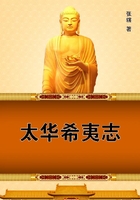The Druids Iona The Druids were the priests or ministers of religion among the ancient Celtic nations in Gaul, Britain, and Germany. Our information respecting them is borrowed from notices in the Greek and Roman writers, compared with the remains of Welsh and Gaelic poetry still extant.
The Druids combined the functions of the priest, the magistrate, the scholar, and the physician. They stood to the people of the Celtic tribes in a relation closely analogous to that in which the Brahmans of India, the Magi of Persia, and the priests of the Egyptians stood to the people respectively by whom they were revered.
The Druids taught the existence of one God, to whom they gave a name "Be'al," which Celtic antiquaries tell us means "the life of everything," or "the source of all beings,:" and which seems to have affinity with the Phoenician Baal. What renders this affinity more striking is that the Druids as well as the Phoenicians identified this, their supreme deity, with the Sun.
Fire was regarded as a symbol of the divinity. The Latin writers assert that the Druids also worshipped numerous inferior Gods.
They used no images to represent the object of their worship, nor did they meet in temples or buildings of any kind for the performance of their sacred rites. A circle of stones (each stone generally of vast size) enclosing an area of from twenty feet to thirty yards in diameter, constituted their sacred place.
The most celebrated of these now remaining is Stonehenge, on Salisbury Plain, England.
These sacred circles were generally situated near some stream, or under the shadow of a grove or wide-spreading oak. In the centre of the circle stood the Cromlech or altar, which was a large stone, placed in the manner of a table upon other stones set up on end. The Druids had also their high places, which were large stones or piles of stones on the summits of hills. These were called Cairns, and were used in the worship of the deity under the symbol of the sun.
That the Druids offered sacrifices to their deity there can be no doubt. But there is some uncertainty as to what they offered, and of the ceremonies connected with their religious services we know almost nothing. The classical (Roman) writers affirm that they offered on great occasions human sacrifices; as for success in war or for relief from dangerous diseases. Caesar has given a detailed account of the manner in which this was done. "They have images of immense size, the limbs of which are framed with twisted twigs and filled with living persons. These being set on fire, those within are encompassed by the flames." Many attempts have been made by Celtic writers to shake the testimony of the Roman historians to this fact, but without success.
The Druids observed two festivals in each year. The former took place in the beginning of May, and was called Beltane or "fire of God." On this occasion a large fire was kindled on some elevated spot, in honor of the sun, whose returning beneficence they thus welcomed after the gloom and desolation of winter. Of this custom a trace remains in the name given to Whitsunday in parts of Scotland to this day. Sir Walter Scott uses the word in the Boat Song in the Lady of the Lake:
"Ours is no sapling, chance-sown by the fountain, Blooming at Beltane in winter to fade."The other great festival of the Druids was called "Samh'in," or "fire of peace," and was held on Hallow-eve (first of November), which still retains this designation in the Highlands of Scotland. On this occasion the Druids assembled in solemn conclave, in the most central part of the district, to discharge the judicial functions of their order. All questions, whether public or private, all crimes against person or property, were at this time brought before them for adjudication. With these judicial acts were combined certain superstitious usages, especially the kindling of the sacred fire, from which all the fires in the district which had been beforehand scrupulously extinguished, might be relighted. This usage of kindling fires on Hallow-eve lingered in the British Islands long after the establishment of Christianity.
Besides these two great annual festivals, the Druids were in the habit of observing the full moon, and especially the sixth day of the moon. On the latter they sought the mistletoe, which grew on their favorite oaks, and to which, as well as to the oak itself, they ascribed a peculiar virtue and sacredness. The discovery of it was an occasion of rejoicing and solemn worship. "They call it," says Pliny, "by a word in their language which means 'heal-all,' and having made solemn preparation for feasting and sacrifice under the tree, they drive thither two milk-white bulls, whose horns are then for the first time bound. The priest then, robed in white, ascends the tree, and cuts off the mistletoe with a golden sickle. It is caught in a white mantle, after which they proceed to slay the victims, at the same time praying that god would render his gift prosperous to those to whom he had given it. They drink the water in which it has been infused, and think it a remedy for all diseases. The mistletoe is a parasitic plant, and is not always nor often found on the oak, so that when it is found it is the more precious."The Druids were the teachers of morality as well as of religion.














